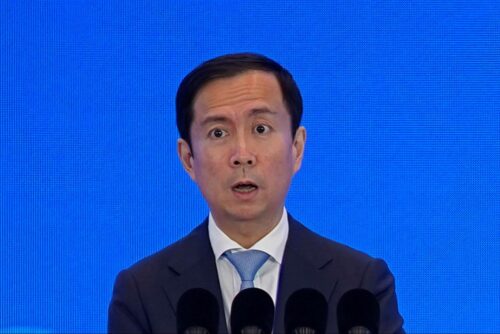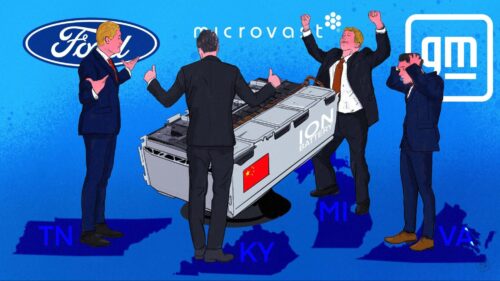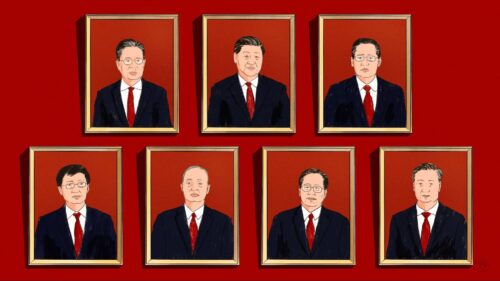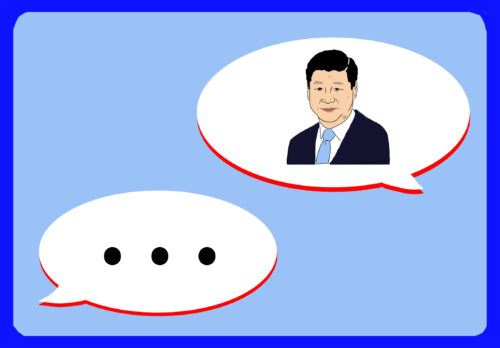China should stop exaggerating its technological advancements, says state-owned newspaper editor

From homegrown smartphone brands to high-speed rail, China’s desire to be a world leader in technology is no secret. But recently, a Chinese state newspaper’s editor-in-chief called upon a more realistic assessment of China’s tech sector, a comment that has provoked reflection among the Chinese public.
“It’s been 40 years since Chinese economic reforms, and China has made remarkable scientific and technological progress,” editor-in-chief Liu Yadong 刘亚东 of Science and Technology Daily 科技日报, the flagship newspaper of China’s Ministry of Science and Technology, said at a salon on June 21. “Although these achievements deserve to be affirmed, it is more important that we see the gap [with Western countries] and our weaknesses.”
Liu suggested that the Chinese public needs to understand that there are areas in which China lags behind. “There is a wide gap between China and other Western developed countries like the U.S. in terms of science and technology. This should be common sense,” he said, criticizing the popular public opinion that China’s economic, technological, and overall strengths are surpassing America.
Unlike previous leaders who followed Deng Xiaoping’s doctrine of “hide our capacities and bide our time,” Xi Jinping’s administration initially kept a much higher profile in the international community. Chinese state media Xinhua publicized China’s tech products — high-speed rail, electronic payment, bike sharing, and online shopping — as the country’s “four new great inventions,” referencing the four great inventions of ancient China (paper-making, printing, gunpowder, and the compass).
During the Two Sessions in March, state media released a nationalist propaganda documentary called Amazing China, featuring China’s tech achievements during Xi Jinping’s first five-year term.
But on April 16, after the U.S. Commerce Department imposed a far-reaching ban on ZTE Corporation, a leading Chinese telecoms equipment supplier which, notwithstanding U.S. sanctions, sold products to Iran and North Korea, the Chinese public’s optimism about the country’s tech sector waned.
As ZTE relies heavily on American semiconductors, the U.S. export ban that prohibited American companies from exporting products to ZTE was near-fatal. “China’s technology boom, it turns out, has been largely built on top of Western technology,” Li Yuan, a columnist for the New York Times, wrote in an article in which she juxtaposed the ZTE incident with the Soviet Union’s “Sputnik moment.”
More significantly, the ban might have signaled to decision-makers that perhaps the country wasn’t ready to openly challenge the world’s true tech giants.
Three days after the ban, Science and Technology Daily — Liu’s paper — published a column analyzing the core technologies in which China lags behind. The first article, headlined “What’s causing our bottleneck,” pointed out China’s inability to manufacture high-end chip products.
Overemphasizing Chinese technological advancement is counterproductive because it enables developed powers to see China as a threat, Liu said at the June 21 salon.
“[Our public opinions] provide cause for ‘China threat’ gossip,” he said. “The narratives that exaggerate China’s development, no matter what motivates them, are harmful to our country and people.”
The administration seems to agree. As the U.S.-China trade war continued to escalate, the Chinese government has become less outspoken about its development agenda, especially in the tech sector.
According to the South China Morning Post, the Chinese government deliberately notified local media outlets to downplay the country’s industrial modernization campaign, known as Made in China 2025, which Donald Trump specifically targeted in the trade battle.
The Global Times, a nationalist tabloid affiliated with Communist Party mouthpiece People’s Daily, published an op-ed by its editor-in-chief, Hu Xijin 胡锡进, who — under his pseudonym Shan Renping 单仁平 — approved Liu’s remarks: “There is no doubt that consistently having voices like this is beneficial to the rise of China. It helps Chinese society keep a clear head.”
“Only if we acknowledge our gap may we improve,” Liu said, according to Lianhe Zaobao. “Otherwise, the Chinese dream can only be a dream.”





